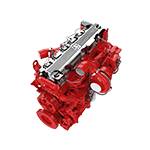Nov . 15, 2024 18:57 Back to list
brake drums vs rotors
Brake Drums vs Rotors Understanding the Differences and Benefits
When it comes to vehicle braking systems, two primary components are often discussed brake drums and brake rotors. Although both serve the fundamental purpose of bringing a vehicle to a stop, they operate differently and have distinct advantages and disadvantages. Understanding the differences between these two systems can help vehicle owners make informed decisions regarding maintenance, upgrades, and overall vehicle performance.
What are Brake Drums and Rotors?
Brake drums are cylindrical components typically found in drum brake systems. They work on the principle of friction; when the brake pedal is engaged, brake shoes inside the drum expand outward, pressing against the inner surface of the rotating drum. This friction slows down the wheel and ultimately stops the vehicle. Brake drums are commonly used in older vehicles and in certain rear brake applications of some trucks and SUVs.
On the other hand, brake rotors, also known as disc rotors, are flat, circular components that are part of disc brake systems. When the brake pedal is pressed, hydraulic pressure causes the brake calipers to squeeze brake pads against the rotor’s surface, generating friction that slows the wheel. Modern vehicles predominantly use disc brakes on the front wheels, with many also using them on the rear.
Advantages of Brake Drums
1. Cost-Effectiveness Brake drums are typically less expensive to manufacture and replace than rotors, making them a budget-friendly option for vehicle owners looking for basic braking functionality.
2. Simplicity of Design Drum brakes have a more straightforward design and can be easier to install in certain vehicle configurations. Their simplicity can contribute to lower labor costs during repairs.
3. Better Performance in Certain Conditions Drum brakes can provide better performance in wet or muddy conditions, as the design can help prevent water and debris from interfering with the braking mechanism.
4. Self-energizing Effect When the brake shoes press against the drum, they can create a self-energizing effect that increases the braking force, particularly beneficial in low-speed situations.
Advantages of Brake Rotors
brake drums vs rotors

1. Cooling Efficiency One of the primary advantages of disc brakes is their ability to dissipate heat. Rotors are often vented or slotted, which allows for better airflow and cooling during heavy braking situations. This reduced heat buildup helps prevent brake fade, enhancing performance and safety.
2. Consistency and Modulation Disc brakes generally offer more consistent braking performance and better modulation compared to drum brakes. This leads to improved vehicle control, especially during high-speed stops or in emergency situations.
3. Easier Maintenance Replacing brake pads on disc brakes is typically straightforward and can often be done without removing the entire rotor. In some cases, rotors can be resurfaced to extend their life, although replacement is often recommended for optimal performance.
4. Weight Reduction Rotors tend to weigh less than full drum assemblies, contributing to overall vehicle weight reduction, which can improve fuel efficiency and handling.
Disadvantages of Each System
While both systems have their advantages, they also have disadvantages. Brake drums can be heavier and less efficient at dissipating heat, which may lead to performance issues under extreme conditions. Additionally, rear drum brakes often require more frequent adjustment.
Conversely, brake rotors generally come with a higher initial cost and are more susceptible to warping due to heat. The brake pads can also wear out faster compared to drum brake shoes, leading to more frequent replacements.
Conclusion
In summary, the choice between brake drums and rotors largely depends on the type of vehicle, driving conditions, and individual preferences. While drum brakes may offer cost savings and simplicity, disc brake systems provide superior performance, heat management, and maintenance ease.
Modern vehicles predominantly utilize disc brakes due to their numerous advantages, but drum brakes still play an essential role in specific applications. Vehicle owners should consider the benefits and limitations of each system and consult with a professional mechanic for personalized advice. Proper understanding and maintenance of braking systems ultimately enhance safety and vehicle performance on the road.
-
HINO Industrial Efficiency-Jiangsu Hino Industrial|Productivity Optimization&Cost Reduction
NewsJul.12,2025
-
HINO-¡Ң���ຽ��е��������˾|Advanced Industrial Solutions&Energy Efficiency
NewsJul.12,2025
-
Premium Brake Drum Iveco – Durable Drum Brake Drum & Brake Shoe Solutions
NewsJul.08,2025
-
High-Performance Brake Drum Liza for Enhanced Safety Reliable Drum Brake Drum & Brake Shoe Solutions
NewsJul.08,2025
-
High-Quality Brake Drum MAZ – Durable Drum Brake Drum & Brake Drum and Brake Shoe for Optimal Performance
NewsJul.07,2025
-
High-Quality Brake Drum Kamaz for Reliable Performance Durable Drum Brake Drum & Brake Shoes
NewsJul.07,2025
